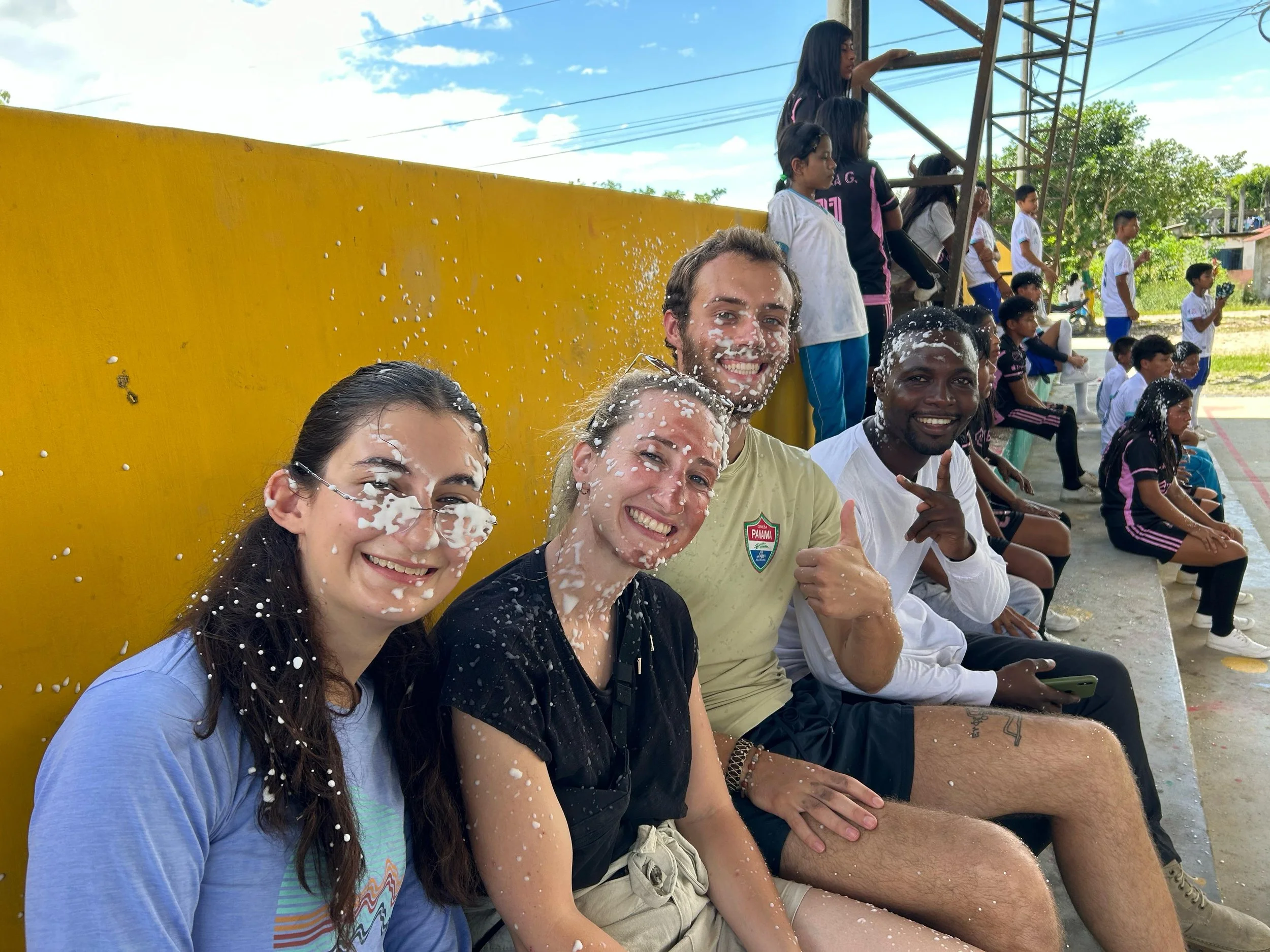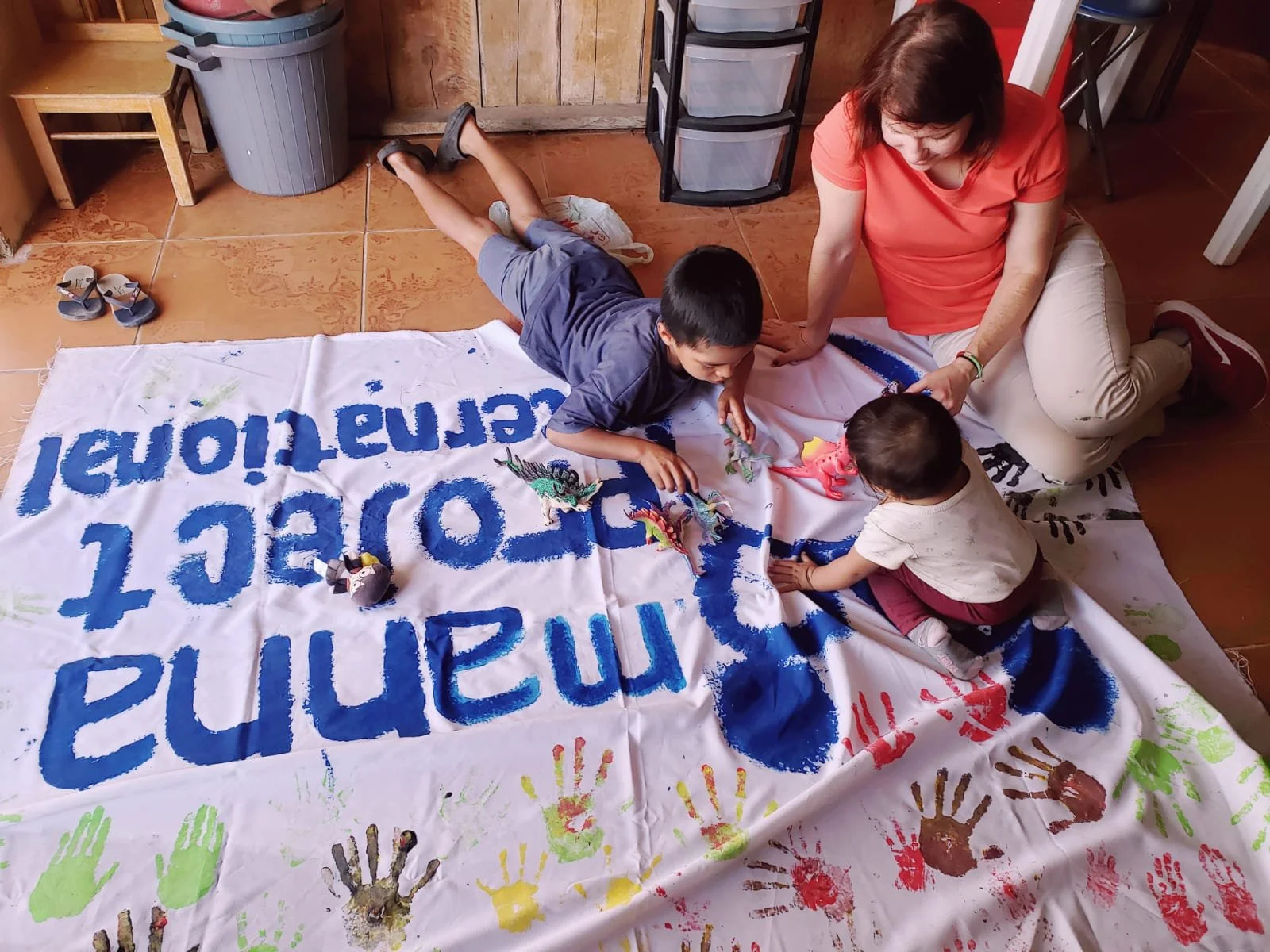Mishaps in Communication
No trip to a foreign country is complete without its fair share of language blunders and miscommunications. If you’re an MPI Program Director living in Ecuador for an extended period of time, there is even more time to adequately embarrass yourself. Although we have all taken Spanish classes in school, the Spanish language has still managed to confuse, tongue-twist and humiliate us in ways we just had to share.
We have swallowed our pride to form this list of false cognates (Spanish words that sound/look like English words but have different meanings) that we have either used ourselves or felt the need to warn other English speakers about. The list is organized in categories of increasing embarrassment, so if you’re going to pay attention to any particular section, it should probably be the last one!
Food Faux Pas:
· Atún: This means tuna. Don’t forget it.
· Aceituna: This means olives. No clue who made that decision!
· Sano: This means healthy. So don’t get worried when it sounds like people are talking about the mental health of vegetables (sane).
· Limón: Lime. Lemons don’t really exist in Ecuador, which I guess makes this a bit easier. However, I have heard a lemon referred to as a lima before, which makes my head spin.
· Sopa: This means soup. Soap is jabón. This will prevent you from asking your hotel for Campbell’s to clean yourself off in the shower.
You’ve Just Gotta Laugh at These:
· Bombero: Fireman. The good guys. Don’t panic when you hear this word. Okay, maybe you should panic a little…and probably evacuate your house… but for fire reasons, not for explosives.
· Codo: Elbow. You’ll never get the Wi-Fi code if you use this word to ask for it.
· Bizarro: Brave or valiant.
· Bizarre: Strange or weird. Get these straight when trying to explain to your friends about a cute guy you recently met.
· Constipado: Congested. Relax - the people around you aren’t trying to open up to you about their personal digestive issues; they just have colds.
· Carpeta: Folder. Usually only a problem if you are a teacher, an employee in a paper store or a person trying to redecorate your home.
· Vaso: Glass. You’ll be disappointed at the size of the vase they give you for your flowers if this is what you ask for.
· Librería: Bookstore. (Library is biblioteca). Usually only problematic if you had been expecting to check out a book for free and get to the counter and are asked to pay.
· Soportar: To tolerate. If someone says this about their opinions of your ideas, just know that it doesn’t mean they’re passionately jumping on the bandwagon.
Now That’s Just Cruel:
· Billón: A trillion.
· Mil: A thousand. Don’t even get me started about these.
· Colegio: High School.
· Bachillerato: High School Diploma. Yup, I’m sure there are many people in this country who think I am less educated than I actually am.
· Estrechar: To reduce; narrow.
· Estirar: To stretch. Told ya these were cruel.
These May Cause Some Problems:
· Condescender: To consent to; to comply. You should probably start taking notes now.
· Delito: Crime. Not as delightful as we’d expected.
· Fabrica: Factory. If you go into a store asking for some of this, you may get way more than you had asked for…
· Éxito: Success. In case of an emergency, although yes, you’d probably want success, I think what you’re really looking for is the salida.
· Caliente: Hot… as in attractive. If it’s a hot day, say tengo calor. You’ll sound way more humble.
· Discusión: Argument. I may suggest making flash cards at this point.
· Grosería: Vulgarity; bad word. Don’t ask for this. It won’t make you many friends. Ask instead for la tienda or el mercado.
You REALLY Don’t Want to Mess These Up:
· Introducir: To insert. If you want to introduce your male friend to a girl, use presentar. This will keep you from getting slapped.
· Embarazada: Pregnant. You’ll be way more embarrassed if you mess this up than you were at whatever caused you to use the false cognate in the first place.
· Molestar: To annoy; to bother. Don’t call the police if you hear two young kids using this word. He probably just pulled her hair or took her toy.
· Nudo: Knot. Imagine the possibilities of messing this one up…
· Excitado: Sexually aroused. If you’re just excited to see your friends or family or to start your new job, use emocionado. This will save you a lot of strange looks.
We hope you have enjoyed reading some of our most embarrassing misuses of language here in Ecuador...you may want to study up if you plan to visit!






